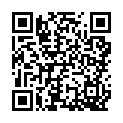|
I thought it would be good to start a thread where those of us living abroad can go to talk about the complexities of having to pay tax on non-resident income, FACTA, investing for retirement when you don't have access to a 401(k) or an IRA, etc. Hopefully we can pool our experience on the best financial practices for those living abroad. I will try and see what goes on in this Boglehead thread about the same topic and see if I can update the OP. Here are some of the basic categories I thought of and if there is anything missing (there is), just let me know and I will update the OP: Checking Exchange Rates http://www.xe.com Sending Money Home Ask me about Foreign Exchange thread http://www.xetrade.com - not valid in all countries, but a good way to exchange currencies so you can pay bills back home, etc. http://transferwise.com/ - pay a flat fee to send money, mostly for EU countries http://www.currencyfair.com - similar to Transferwise Investing If you claim the FEIE, you cannot contribute to a Roth IRA. To do so, you need to have (a) compensation (b) a MAGI less than $112,000 (if single) and (c) at least as much compensation as you are contributing. In IRS Pub 590, it explicitly states that "Any amounts (other than combat pay) you exclude from income, such as foreign earned income and housing costs" are not counted as compensation. In order to contribute to a Roth IRA, you would need to include all of your income and then use foreign tax credits to offset your tax liability on that income. If you are using taxable accounts to save, don't invest in a Target Retirement Fund. You can claim a foreign earned income exclusion on any income generated for you by a fund comprised of international markets (these usually make up at least a part of a TRF). Taxes You should file a tax return every year, but if you can prove you live outside of American (via the bona-fide resident test or the physical resident test), you are eligible for the Foreign Earned Imcome Exclusion (up to $97,600 for 2013). If you are living in a country where taxes are lower than in the US, it is a good idea to take this exclusion. If you live in a country with similar or higher tax rates than the US, it might make more sense to claim a foreign tax credit. Doing this will allow you to do things like invest in a Roth IRA. Don't forget to file a state return. Some states make it easy to be an expat (mainly because they have no income tax), others make it really hard by saying that if you have any sort of connection to the state (driver's license, bank account, voter registration, etc.) you are still a resident and need to pay taxes. Total Confusion fucked around with this message at 13:45 on Mar 12, 2014 |
|
|
|

|
| # ? Apr 26, 2024 18:33 |
|
Does it matter how much you earn to qualify for IRA contributions? I worked one month in the USA in 2013, can I contribute more than I earned back in the states? (I already put my $5500 into my roth, do I risk being penalized for this?) My financial advisor said I should still be contributing to my roth IRA, but I don't think they're experts in expat finances. I'll ask him to clarify the rules, sounds like maybe next year I will not be able to.
|
|
|
|
AFAIK, the only limit to investing in an IRA when living abroad is that the amount you invest has to be equal to or smaller than your adjusted gross income for the year (up to $5,500). This means that you can't take the Foreign Earned Income Exclusion if you earn less than $97,600 as it would leave you with an AGI of $0 and have to go with foreign tax credits. I think from the other thread you said you lived in Singapore, which looks like it has lower tax rates than America (topping out at 20% or something), so it probably makes sense to take the FEIE. That would mean that you can only contribute however much you made for the one month of working in the USA (if you make less than $97,600) or end up paying more taxes to America on your Singaporean income.
|
|
|
|
Singapore tax is like 7%
|
|
|
|
So I live abroad and make about 25,000 USD a year where I am. Local taxes take about a third of this. I use the foreign income tax credit and don't pay anything in the states. I have some money in a taxable account in the US and have about $12,000 in unrealized short term gains, as well as about $3,000 in dividend income for this year. I am thinking about realizing these gains (it would be a nice chance to rebalance my portfolio as well) as, if I understood everything correctly, I would be paying relatively little in taxes. I believe I have another year of this level of income and then I may move back to the US and be in a higher tax bracket. Or should I wait another year to take profits in order to get these as long term capital gains?
|
|
|
|
(Not an expert, so someone else feel free to correct me if I'm wrong) From what I understand, it would probably be better to wait until next year when your assets will be taxed at long-term rates. If you took the FEIE, your $25,000 foreign salary would be $0 in America, so you would only have $15,000 in US income, which would put you into the 10-15% tax bracket. If you are in that bracket, you pay 0% long term capital gains tax. If you don't wait, your short term gains will be taxed as normal income, which with $12-15,000 in income, you could end up owing taxes on (max 15%).
|
|
|
|
Do you know if you are allowed to contribute to a Roth 401k while claiming the FEIE?
|
|
|
|
Saint Fu posted:Do you know if you are allowed to contribute to a Roth 401k while claiming the FEIE? As long as you don't need to have earned income to contribute to a Roth 401(k), I would think you would be OK, but you should probably check with a tax advisor just to be sure.
|
|
|
|
Just got denied opening a bank account in Philippines because "Unfortunately, applications of US citizens are currently on hold while our legal department is reviewing new US regulations with regards to foreign investments of their citizens." gently caress you FATCA! Can I trade on the PSE from my american brokerage account?
|
|
|
|
Gold and a Pager posted:You can claim a foreign earned income exclusion on any income generated for you by a fund comprised of international markets. Can I get some details or examples? Are we talking holding VGTSX with Vanguard or is this more complicated?
|
|
|
|
slap me silly posted:Can I get some details or examples? Are we talking holding VGTSX with Vanguard or is this more complicated? I got the initial info from 80k in the long-term investing thread: 80k posted:Funds-of-funds are ineligible for the foreign tax credit, even if they hold international stocks. Normally, in the taxable account, if you own index funds that hold international stocks and distributed foreign income, you will be able to claim a foreign tax credit on your tax return. Thus if you are going to put any asset class in a taxable account, the first priority should be international stock funds. And I found this from Vanguard: https://advisors.vanguard.com/VGApp/iip/site/advisor/investments/taxcenter/foreigntaxcredit
|
|
|
|
Does anyone have any experience living in Switzerland and having to deal with US finances? My financial advisor is a nice dude, but it's obvious he has never dealt with his clients living outside the states for more than a few months when we had to explain to him how to make an international phone call to us. My wife and I currently contribute our max for our Roth IRA every year and try to put a little money into a taxable joint account made up of a balanced set of mutual funds. We just moved in September, so we should still have income we made in the states, but for 2014 will we no longer be able to contribute to our Roth? Individually we make less than 97k a year while here, and I assume we are allowed to double that number as a married couple, right? That means when we take the exemption that we'll be at $0 for income? Do I still need to file a US tax return because of the money I'll make from my mutual funds (outside the funds in the Roth)? Figuring out taxes in Switzerland has been very hard, and I hate to make the joke about SwissLand being the land of tax evasion, but the people here have been hilariously evasive on what sources of income are taxed and what's not. So I'm not exactly sure if taxes here are lower than in the US. In the US we were technically below the poverty level and got a lot back during tax return season, but the Swiss apparently never get taxes wrong (ignore the fact that my first paycheck said I was unmarried and childless) so no one ever gets tax returns.
|
|
|
|
Anonymous Zebra posted:Does anyone have any experience living in Switzerland and having to deal with US finances? My financial advisor is a nice dude, but it's obvious he has never dealt with his clients living outside the states for more than a few months when we had to explain to him how to make an international phone call to us. My wife and I currently contribute our max for our Roth IRA every year and try to put a little money into a taxable joint account made up of a balanced set of mutual funds. We just moved in September, so we should still have income we made in the states, but for 2014 will we no longer be able to contribute to our Roth? Individually we make less than 97k a year while here, and I assume we are allowed to double that number as a married couple, right? That means when we take the exemption that we'll be at $0 for income? Do I still need to file a US tax return because of the money I'll make from my mutual funds (outside the funds in the Roth)? From what I've read, it looks like national income tax is .77% for married couples and the caton rate varies, with Geneva having the highest at like 17.5%, so you would have a max 18% income tax rate, which is basically about as low a tax rate you can get in the states (at $32,500 a year, your federal rate is 25%). You'd want to confirm all that but it looks like you would have to pay more tax at your income in the US than in Switzerland, so the FEIE might be best. I've wanted to talk to an accounting firm that specializes in expat tax affairs, but they charge like $100 for a half hour consult  But yes, file your taxes every year regardless of the money you make as that gets the clock ticking on the statute of limitations on the return.
|
|
|
|
Anonymous Zebra posted:Does anyone have any experience living in Switzerland and having to deal with US finances? My financial advisor is a nice dude, but it's obvious he has never dealt with his clients living outside the states for more than a few months when we had to explain to him how to make an international phone call to us. My wife and I currently contribute our max for our Roth IRA every year and try to put a little money into a taxable joint account made up of a balanced set of mutual funds. We just moved in September, so we should still have income we made in the states, but for 2014 will we no longer be able to contribute to our Roth? Individually we make less than 97k a year while here, and I assume we are allowed to double that number as a married couple, right? That means when we take the exemption that we'll be at $0 for income? Do I still need to file a US tax return because of the money I'll make from my mutual funds (outside the funds in the Roth)? I'm pretty late on this but you'll need to talk to someone here in Switzerland who knows about expats and Swiss taxes. The Swiss don't do withholding (unless you're not a permanent resident) so that's why they don't get returns. You just get a bill at the end of the year for the amount you owe. Most good companies (iirc you work for the best university in the country) give their employees a 13th month's salary to help with this cost. If you get a double paycheck this month, that's why. You might be getting tax withheld from you paychecks, in that case you'll have to speak to the tax office or a tax advisor about figuring out how much you owe and all that. Search glocals, English forum Switzerland, etc. and you'll get some info from other people who have had to deal with it. I'm considered a permanent resident so I can't help you. For socking away retirement money, you can open up an account for what's called a "3rd pillar". This is the private contribution to your pension. Go into a bank and talk to them there about it, I think you have until next week to move the money in to be tax-exempt in Switzerland (but not in the US).
|
|
|
|
greazeball posted:I'm pretty late on this but you'll need to talk to someone here in Switzerland who knows about expats and Swiss taxes. The Swiss don't do withholding (unless you're not a permanent resident) so that's why they don't get returns. You just get a bill at the end of the year for the amount you owe. Most good companies (iirc you work for the best university in the country) give their employees a 13th month's salary to help with this cost. If you get a double paycheck this month, that's why. Thanks for this answer. One further question for you. Are you from the US? The people on Swiss English always seem to be bitching that the banks here don't let US expats open trading account with them due to the current issues they are all having getting sued by the IRS, so I was curious if this was going to screw over my chances to contribute to the 3rd pillar.
|
|
|
|
Anonymous Zebra posted:Thanks for this answer. One further question for you. Are you from the US? The people on Swiss English always seem to be bitching that the banks here don't let US expats open trading account with them due to the current issues they are all having getting sued by the IRS, so I was curious if this was going to screw over my chances to contribute to the 3rd pillar. Yeah, I'm American but my wife's family has a private banker and he managed her accounts while she was in the states and got me set up when I moved here. So I don't know if I've had a normal experience with Credit Suisse. They're introducing a new fee structure that sounds pretty lovely so I've been looking at other options and Post Finance seems the best. They assured me there was no problem to sign up as a US citizen.
|
|
|
|
My father is looking to transfer money from his US bank account to Japan. Apparently he used to be able to do so fairly easily through his bank but now can't and his financial advisor, who he had worked with for 10+ years, can no longer advise him. He's asked for my help but I'm totally clueless. The only companies I can find for this service is Western Union and Pay Pal but I've always been sketchy of Western Union and gently caress Pay Pal. Does anyone have any recommendations or know of the best way to make these kinds of transfers?
|
|
|
|
Can you claim the foreign earned income exclusion if you live outside of the US, but you work full-time remotely for a company in the US? I've never been clear on this.
|
|
|
|
TouchyMcFeely posted:My father is looking to transfer money from his US bank account to Japan. Apparently he used to be able to do so fairly easily through his bank but now can't and his financial advisor, who he had worked with for 10+ years, can no longer advise him. I've used Moneygram to send/receive money from South America for years, and never had a problem. The only pain is that if you're sending a really large amount, they're only going to want cash. Where does he want to send the money in Japan? In Japan, a bank should have all of the details that you'd need for the US side of things, and then find someone at his bank who knows how to actually how to do the transfer.
|
|
|
|
Overseas remittances are pretty fundamental, he ought to talk to someone else at his bank because he should be able to do it with just a SWIFT (or two, since the Japanese bank probably uses an agent), branch code, account number, and beneficiary name. Alternatively if he wants the transaction to stay under the radar -- anything over JPY 1mio requires a report to National Tax Agency -- international postal money order is better. Can get those at the post office, up to $700 each. Sending multiple SWIFTs for JPY 999,000 for example raises a lot of red flags.
|
|
|
|
Thanks for the help. Just got an email from my father. Apparently the WU group his bank in the US has moved to requires that he has proof of residency in the US (name on bills, etc) in order to setup an account. This is impossible since he hasn't lived in the US in over 20 years. There's nothing sketchy going on. He moved to Japan to teach English and has accounts both here and there. He's coming into retirement and needs to transfer funds from here to there to pay for his living expenses. I'll look into SWIFT. Maybe that's a better way to go. Worst case scenario is I'm a signer on his accounts here in the US. I guess I could setup the WU account and just give him the account info to make transfers as he pleases. I'd rather keep myself out of it in case there's some financial/legal ramifications I'd be responsible for.
|
|
|
|
Juanito posted:Can you claim the foreign earned income exclusion if you live outside of the US, but you work full-time remotely for a company in the US? I've never been clear on this.
|
|
|
|
Juanito posted:Western Union is not sketchy, in my opinion. It's just that you can't get your money back if you send it to a scammer. I absolutely would not use Paypal for this, because they'll lock the account easily for any reason, and then you couldn't even touch your funds for 6-12 months. You're taxed based on where you work, physically. Most places will stress that you can't remote work while on vacation in another country (which is code for "continue to work but bill your hours in your home office location")
|
|
|
|
So I have a random question about the Foreign Earned Income Exclusion. I moved to a foreign country for work in September 2013, started work in October and will be working here for quite a long time. For the last few months I've been under the assumption that I cannot utilize the FEIE for my 2013 taxes because I was not a resident of the foreign country for the entire tax year. However, today I did a short 30 minute consultation with a big-wig tax attorney and HE told me that since I have 3 months (1/4 of the year) of foreign income that I simply divide the exclusion amount by 1/4 and only exclude 1/4 of the yearly maximum ($24,400 in this case). This seems contrary to everything I read, but to make matters worse the actual tax attorney is too expensive for me and he suggested I just use a basic tax software to complete my taxes since they are relatively simple. This puts me in the odd position of doing my own taxes and being unsure if I should follow the advice of an actual tax attorney over what I read on the internet...even if what I've read seems abundantly clear. Anonymous Zebra fucked around with this message at 00:34 on Feb 26, 2014 |
|
|
|
Anonymous Zebra posted:So I have a random question about the Foreign Earned Income Exclusion. I moved to a foreign country for work in September 2013, started work in October and will be working here for quite a long time. For the last few months I've been under the assumption that I cannot utilize the FEIE for my 2013 taxes because I was not a resident of the foreign country for the entire tax year. However, today I did a short 30 minute consultation with a big-wig tax attorney and HE told me that since I have 3 months (1/4 of the year) of foreign income that I simply divide the exclusion amount by 1/4 and only exclude 1/4 of the yearly maximum ($24,400 in this case).
|
|
|
|
You can prorate your time outside the US from 2013 only after you have exceeded the 330 day requirement. So if you look at the 365 consecutive days from 9/1/13-8/31/14 and you are outside the US for 330 of those days, you can amend your 2013 returns to reflect these 3 months. If you continue to be outside the US for the remainder of 2014, you can take the full years worth of exclusion and continue taking it while you continue to meet the 330 out of 365 requirement. I did this successfully in a previous year. For me, I moved abroad in early December so I amended for about a month of tax free time. I will say, however, that I was with the same company and receiving roughly the same pay while in the US and after moving abroad. I am not sure how it would work if you earned different amount of money while at home and abroad. Turbotax actually works pretty well for the FEIE, it's what I've been using for the last 3 years and seems to be doing it right.
|
|
|
|
Hey folks, this is my first tax year as an ex-pat. A few questions... * If all my money is earned out of country, will I ever have to pay US taxes again? I feel like I read the FEIE is only good for a few years. * What should I expect when going through paperwork for having more than $10k in non-US accounts? * Can we still collect SSI when we retire? Can we get it early? Thanks!
|
|
|
|
Old Fart posted:
It depends. If you make less than ~$95,000 a year, then no. The FEIE is good for as long as you meet the requirements. If you live in a place with higher taxes than in America, you can also just use foreign tax credits to offset any taxes you might owe. Depending on what sort of assets you still have in the US (bank or investment accounts), you may have to pay taxes on those. Old Fart posted:
It depends on how much over $10,000 you have I suppose. If it's not hundreds of thousands of dollars, it shouldn't be much of a hassle at all. I had to file a FBAR for the first time this year and it seemed pretty straightforward: http://bsaefiling.fincen.treas.gov/NoRegFBARFiler.html Old Fart posted:
It depends. Have you already contributed enough to SSI to claim a pension? If so, then yes. If not, then depending on which country you live in, you may be able to get credits in order to qualify for SSI if your country and the US have signed a totalization agreement. AFAIK, no, you can't get SSI earlier because you are living abroad.
|
|
|
|
Anonymous Zebra posted:So I have a random question about the Foreign Earned Income Exclusion. I moved to a foreign country for work in September 2013, started work in October and will be working here for quite a long time. For the last few months I've been under the assumption that I cannot utilize the FEIE for my 2013 taxes because I was not a resident of the foreign country for the entire tax year. However, today I did a short 30 minute consultation with a big-wig tax attorney and HE told me that since I have 3 months (1/4 of the year) of foreign income that I simply divide the exclusion amount by 1/4 and only exclude 1/4 of the yearly maximum ($24,400 in this case). This is wrong. However, you can still use the entire FEIE. The FEIE physical presence test does not work off the calendar year or the tax year. It is applied as of the time you file the tax. In other words: -wait until June (you get an automatic 3 month extension if you are abroad) -file for another extension, which will last until October 15th -in October, file for 2013 using your full FEIE as long as you meet the 330 day test at that time As long as you don't take any extended vacations in the States you will be fine.
|
|
|
|
Ah, that must have been how he was planning on doing it. I'm not used to the weird 4th dimensional logic that comes with tax filing since I usually file immediately in January/Feb. as soon as all my forms show up
|
|
|
|
There's nothing wrong with filing now and amending later, just takes some extra work on your part. A reason you would do this is if you were due a refund for 2013 (in addition to what you'd get back from the 2013 portion of the FEIE) and didn't want to wait until next September to get it.
|
|
|
|
If you need to move money across the border I can recommend CurrencyFair.com. They have the best exchange rates I've found so far, and a low fee for the last leg of the transfer. Granted I haven't tried receiving to a US bank, only Canadian ones.
|
|
|
|
Anyone have experience with paying their US bills: debts, car, loans, etc... While living overseas? I'm wondering how difficult it would be to deal with my bank payments and whatnot when I'm paying from a foreign account/currency.
|
|
|
|
I have yet to figure out how to pay my US credit card from overseas by myself without having to pay an extra $30 or so for a bank check and sending it via mail, which takes a long time. I end up paypal-ing the money to my mother in the states, who then pays it online. The routing numbers in Australia are significantly shorter than in the US so I can't do it myself. The two systems just won't recognize each other. I do have a US paypal account but I can't move the money to the credit card company from there. There are websites which specialize in this sort of thing and I used to have the URLs saved but I can't find them at the moment. One was called xtrade or something along those lines. It was a really long process to get signed up with the one I ended up choosing and I just ended up giving up and got lazy. Luckily I don't really need those type of services very much anymore. vv xetrade was the site I was thinking of BIZORT fucked around with this message at 08:33 on Mar 11, 2014 |
|
|
|
Gold and a Pager posted:Sending Money Home Transferwise and Currency Fair lets you send money home for cheap. I've been using it for a while and the most I've had to pay was 5 EUR to transfer 1,200 EUR back home. Though it is not available for every currency. Total Confusion fucked around with this message at 08:51 on Mar 11, 2014 |
|
|
|
So my girlfriend has been frugal as gently caress over the years and has saved well over a hundred grand. Anyone have any advice on getting that money home? Because the exchange rate is the best it's been in over 5 years for the currency of her savings.
|
|
|
|
Love Stole the Day posted:So my girlfriend has been frugal as gently caress over the years and has saved well over a hundred grand.
|
|
|
|
Juanito posted:Where does she live, and where do you want to transfer to? Is she American? Yes she is American, and that's the currency she wants to translate it into.
|
|
|
|
Assuming she still has a bank account in the US, just wire transfer it home. Safe, secure, low fee compared to the transfer size, and the bank will automatically convert it at a very good rate (wholesale or near it).
|
|
|
|

|
| # ? Apr 26, 2024 18:33 |
|
Thanks for the thread! I've got a lot of research, reading up, and questions to ask when I get some more free time! Here's one for starters: until now, I've been claiming the FEIE here in Japan as my employer covers all my taxes, which aren't too high to begin with. Is the foreign tax credit a 1:1 thing? I'm moving to Australia (ostensibly for good) early next year, and taxes there are probably always going to be higher than in the US. Assuming the exchange rate doesn't crater, I would hopefully be exceeding the ~$USD97k for the FEIE by mid-career. Is one more or less in the clear as far as Uncle Sam is concerned if you're paying higher taxes abroad and filing for the foreign tax credit? Also, Florida residency  zmcnulty posted:Alternatively if he wants the transaction to stay under the radar -- anything over JPY 1mio requires a report to National Tax Agency -- international postal money order is better. Can get those at the post office, up to $700 each. Sending multiple SWIFTs for JPY 999,000 for example raises a lot of red flags. Also, thanks for this! What sort of fees are there for international postal money orders in Japan, and what's the rate like?
|
|
|
















